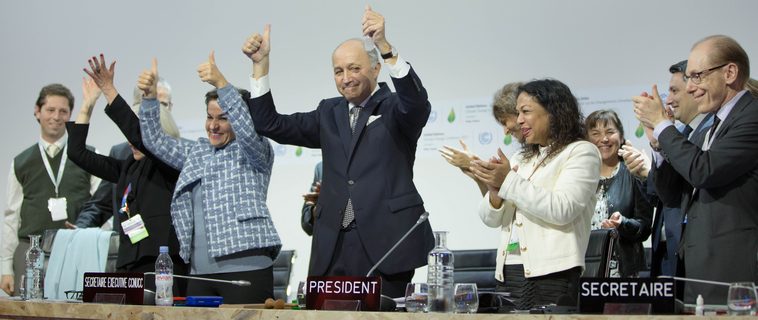The United Kingdom of Great Britain and Northern Ireland has submitted its long-term low-emissions strategy, presenting a pathway for emissions reductions of the UK by at least 80% by 2050 compared to 1990 levels through a process of legally binding five-year caps on emissions.

The United Kingdom is the eighth Party to the Paris Climate Change Agreement to submit a long-term strategy. The other Parties include: Czech Republic, France, Benin, United States, Mexico Germany and Canada. All long-term strategies that have been submitted and published to date can be viewed here.
The United Nations Framework Convention on Climate Change (UNFCCC) COP, by its decision 1/CP 21, paragraph 35, invited Parties to communicate, by 2020, to the secretariat mid-century, long-term low greenhouse gas emission development strategies in accordance with Article 4, paragraph 19, of the Agreement.
The UNFCCC secretariat says it welcomes all efforts towards the development of long-term strategies.
As action is taken before 2020, an eye has to be kept on the future. Action today must be in service to the long-term goals enshrined in the Paris Agreement, according to the UNFCCC, adding that the Agreement is itself a global strategy for the longer term that is defined by three aims:
First, limit the average global temperature rise to well below 2°C above preindustrial levels and pursue efforts to limit this increase to 1.5°C.
Second, increase the ability to adapt to the adverse effects of climate change and foster climate-resilient and low greenhouse gas emissions development, in a manner that does not threaten food production.
Third, make financial flows consistent with a pathway toward low greenhouse gas emissions and climate-resilient development.
“This provides a clear direction for long-term development. Science states that achieving the long-term temperature goal requires global greenhouse gas emissions to peak by 2020 and be reduced to zero this century.
“To limit warming to as close to 1.5° degrees Celsius, this reduction to zero must take place around the year 2050. Given the link between economic activity, greenhouse gas emissions and the impacts of climate change, this is a signal to nations and non-state stakeholders alike.
“Without an increase in ambition and resilience, this reduction will not be achieved. And without longer term planning, there will be no clear pathway towards the zero reduction around the year 2050.”
The Paris Agreement, says the UNFCCC, encourages all Parties to formulate and publish long-term low-greenhouse gas emission strategies.
To assist countries, the World Resources Institute (WRI) is developing a catalogue of resources for how to prepare long-term strategies. Information can be accessed here: https://www.wri.org/our-work/topics/long-term-climate-strategies.
